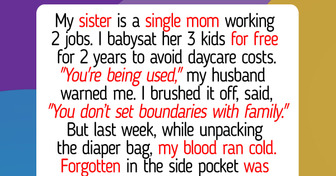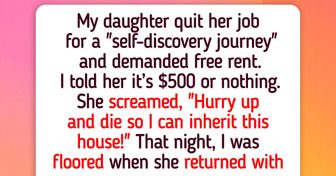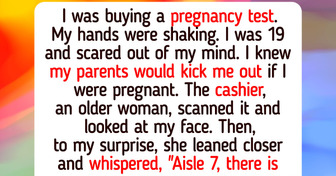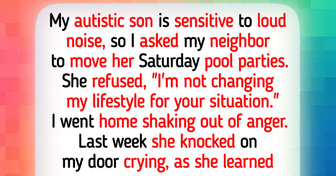10 Things You Do to Your Pet That Might Cause Them Stress
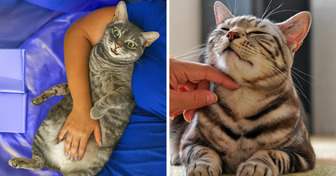
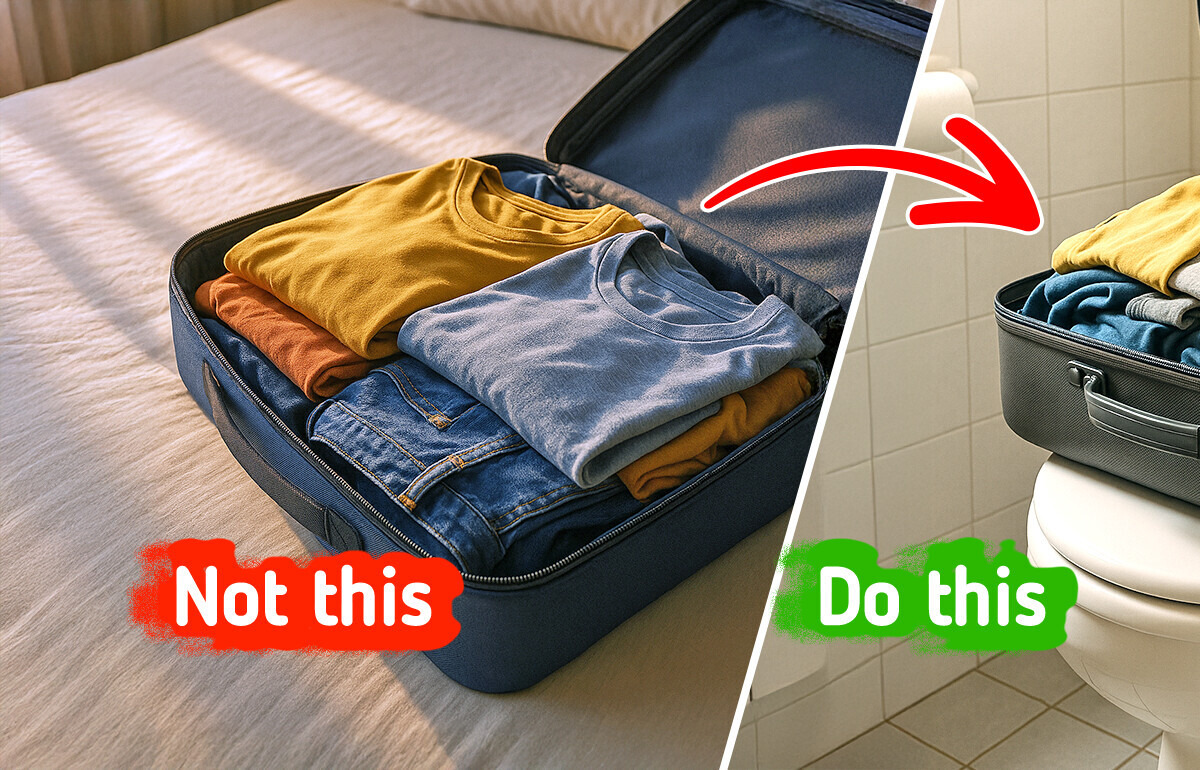
Coming home from a trip feels amazing... until you realize souvenirs aren’t the only things that can sneak back with you. Bed bugs love to hitch rides in suitcases, and once inside, they’re tough to evict. The fix? A few smart steps right after you walk in the door can keep these tiny stowaways out of your bedroom for good.
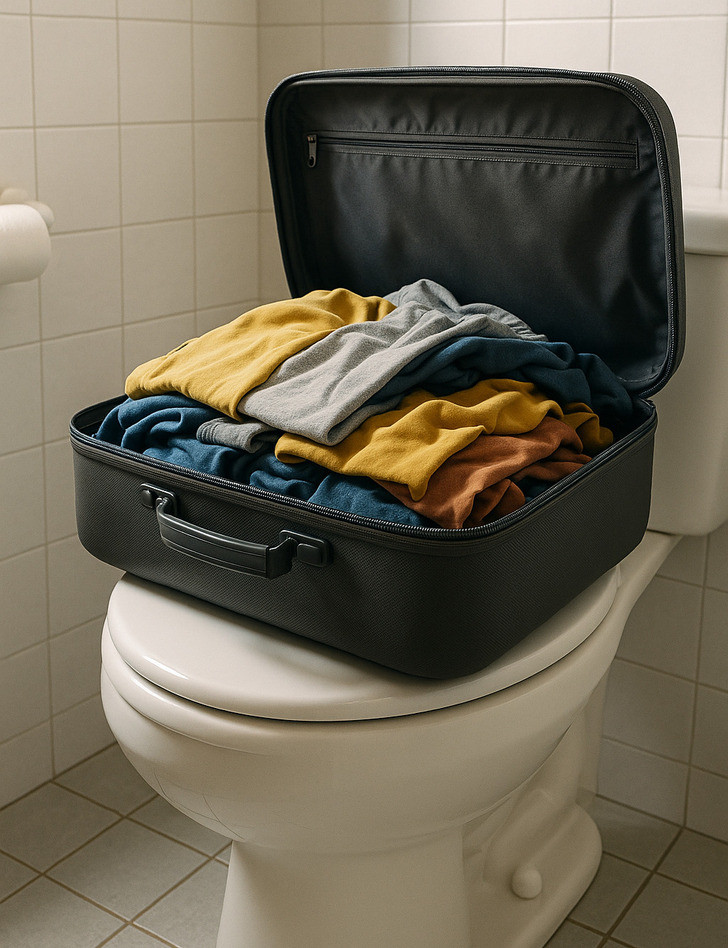
Roll your luggage straight to a bathroom, entryway, garage, or laundry room. These areas have fewer upholstered surfaces where bed bugs love to hide, making inspections and clean-up easier. Then do your first look: check the handle seams, corner guards, zipper teeth, and lining with a flashlight. Don’t set bags on beds or sofas until you’ve done the rest of this list.
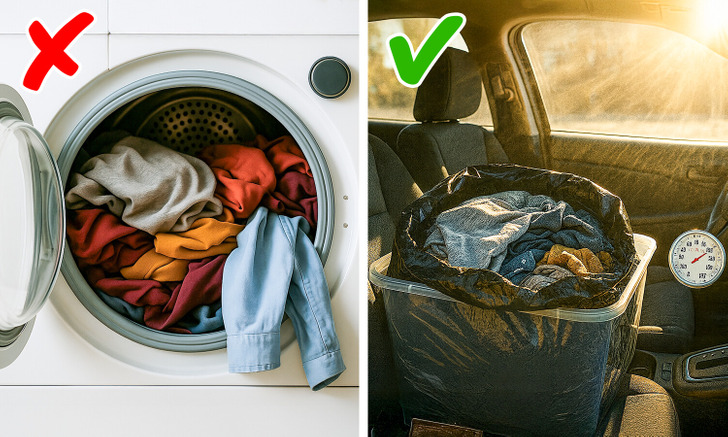
Most people toss travel clothes into the dryer, but home dryers often don’t stay hot enough to kill bed bugs and their eggs, especially in big or heavy loads. A smarter move? Use your car and a plastic bag.
On a sunny day, a parked car heats up like a natural oven, reaching lethal temperatures that bed bugs can’t survive. Simple, eco-friendly, and surprisingly effective.
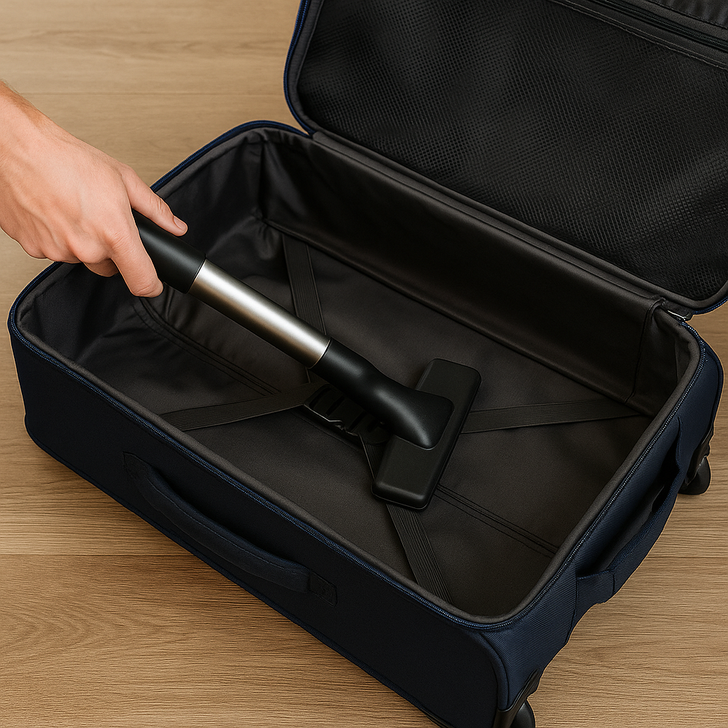
Vacuum seams, piping, and pockets with a crevice tool; wipe rigid surfaces; and empty the vacuum outside immediately. If possible, store luggage in a garage/basement, or double-bag before indoor storage. Consider a portable luggage heater if you travel often.
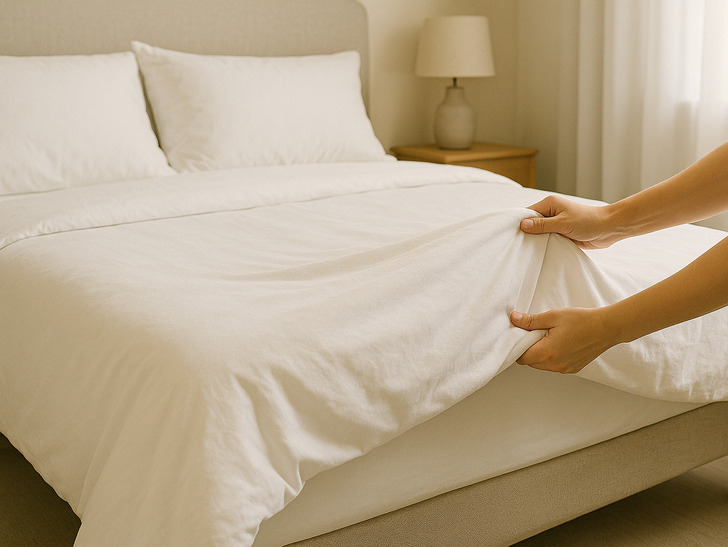
Slide the bed 6+ inches from the wall, tuck in blankets so they don’t touch the floor, and install bed bug—rated encasements on mattress and box spring (light-colored, tear-resistant, zipper that closes completely). Leave encasements on for up to a year to trap any hidden survivors.
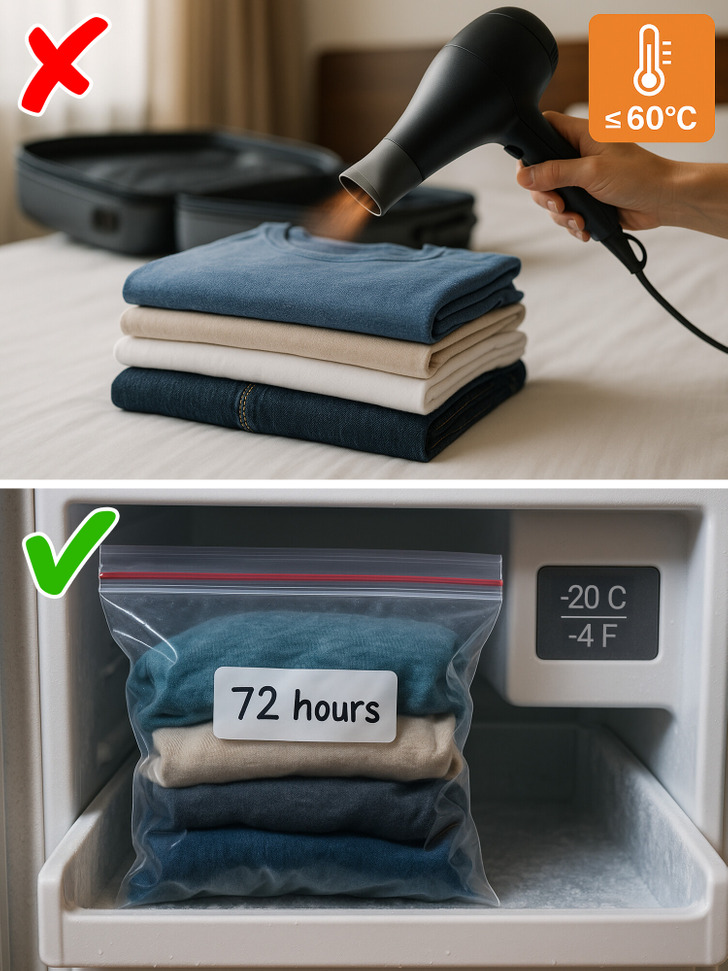
Think twice before grabbing a hair dryer! Consumer models just don’t get hot enough to kill bed bugs, and often end up blowing them deeper into fabrics or cracks. A far more reliable method is the freezer.
According to pest experts, sealing clothes or travel items in plastic bags and keeping them at —20 °C (—4 °F) for at least 72 hours will wipe out both bugs and their eggs. It’s a lesser-known trick, but one that’s highly effective, safe for delicate fabrics, and easy to do right at home.
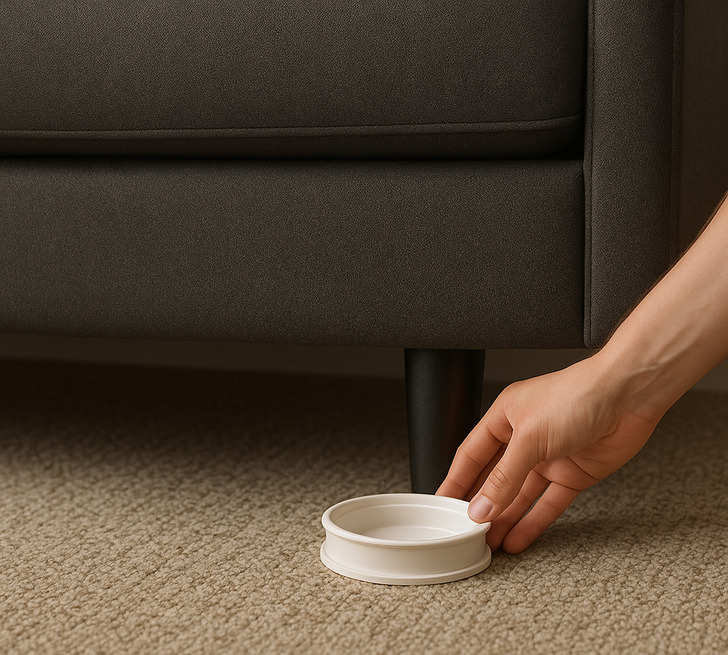
Place interceptor cups under each bed and sofa leg; they catch low-level activity that you’d otherwise miss. Research shows interceptors detect small infestations better than visual checks alone. Check for the first week or longer after trips.
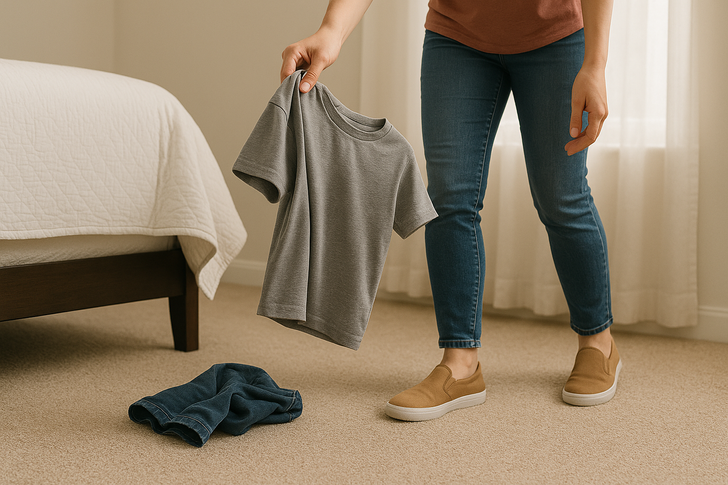
Clutter = hiding places. Keep floors clear near the bed and quarantine any secondhand textiles or furniture (inspect thoroughly before bringing them in). Encasements and clutter control make treatments faster and monitoring easier.
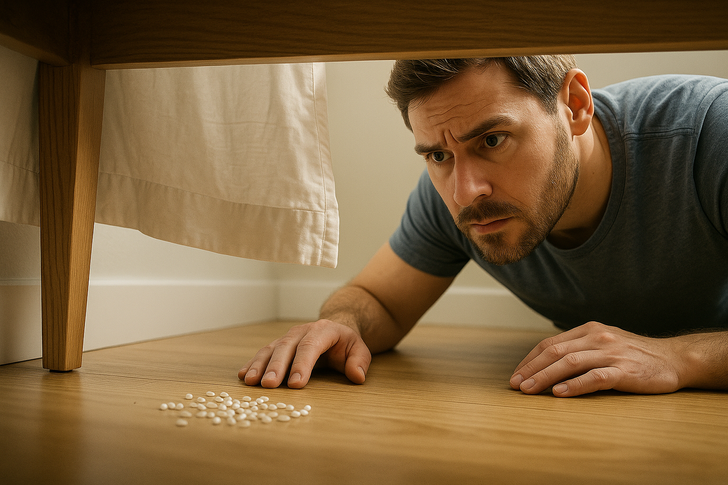
Some people don’t react to bites, so rely on physical signs: pepper-like specks, shed skins, tiny eggs, or live bugs in mattress seams, box spring tags, bed frames, and headboards. Use a flashlight and credit card edge to probe crevices.
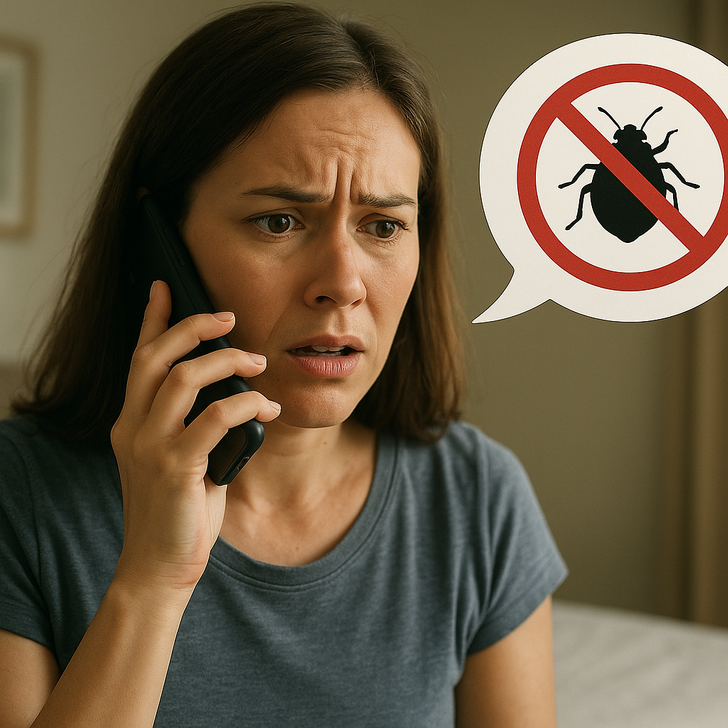
If traps catch anything—or you see suspicious staining—act quickly. Many infestations need multiple treatments and follow-up over months; professionals can deploy targeted steam, dusts, and whole-room heat safely.
Coming home after a trip should feel restful, not risky. By taking just a few simple steps, you make sure the only things that return with you are memories and not midnight pests. So the next time you unpack, think smart, act fast, and keep your home the peaceful retreat it deserves to be.
And if you want to stay one step ahead, you can read this article here about other silent signs to watch for. Because prevention always beats a 3 a.m. itch.

